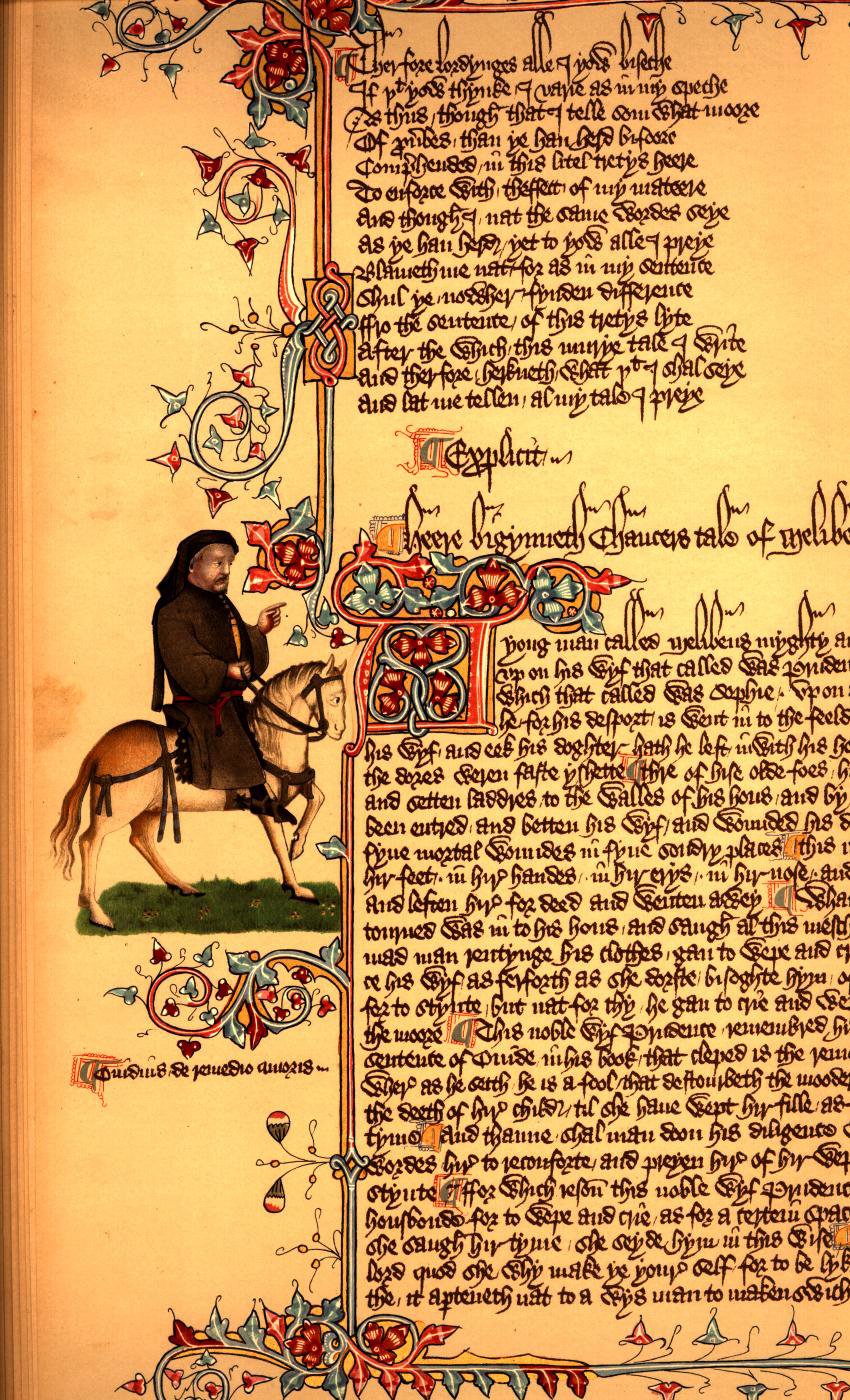EN352: CHAUCER'S CANTERBURY TALES
Spring Semester 2007
Tuesday and Thursday 5:00-6:15

Click here for the course syllabus.
Instructor: Robert Epstein
Office: 120 Donnarumma Hall
Office Hours: Wednesday 1:00-4:00, or by appointment
Office extension: 2787
E-mail: repstein@mail.fairfield.edu
DESCRIPTION
This upper-level seminar studies selections from Geoffrey Chaucer’s Canterbury Tales, the most celebrated and influential work of medieval English literature. Our goals are to become familiar with Middle English language and Chaucer’s poetic style, to analyze the tales in detail, to read and engage works relevant works of Chaucerian criticism, and to try to understand how Chaucer’s writing is shaped by and also gives form to its social contexts.
REQUIREMENTS
Most important, students are required to attend class prepared to discuss the assigned material. This seminar is based primarily on class discussion.
Each week, there will be assigned a primary reading from the Canterbury Tales. The selections will usually amount to about 800-1,200 lines of verse per week. In some weeks, there will also be assigned a secondary reading of critical or supplemental material. The secondary readings will either be posted on Electronic Reserves or distributed as photocopies in class. The secondary readings are part of the required reading and students must read them thoroughly and diligently.
There will be ten response papers due during the term. These are short written assignments, about a page in length. They are due at the beginning of the class on the day assigned. If for some reason you are unable to attend class, send the response paper to me as an e-mail attachment before class time. These response papers are not graded but they are required and count towards the final grade. Their purpose is to help you organize your thoughts on the readings and to facilitate class discussion. Late response papers, therefore, are of little use and can’t be accepted.
The first graded assignment is the mid-term essay. This will be a paper of about 5-6 pages on some element of the Canterbury Tales that we will have discussed to that point.
At the end of the semester, students will submit a critical research paper on one of the pilgrims or tales from the Canterbury Tales. This paper will be 8-10 pages in length and will make use of at least two critical sources. Students may use the secondary critical sources already assigned, but we will also work on finding other critical sources using the campus resources.
There will also be a final exam. This exams will be primarily quotation-based. That is, it will ask students to identify, to interpret, and to discuss passages that we have discussed from the Canterbury Tales. Obviously, therefore, it is important that students become familiar with Chaucer’s Middle English.
GRADES
Papers are due at the beginning of class on the day indicated on the syllabus. Unless I have explicitly granted an extension before the due date, late papers will be penalized one-third of a letter grade per day. (A paper that would have earned a B+ will receive a B if it is one day late, a B- if it is two days late, and so on.)
After essays are submitted, I will read them and return them with grades and with comments and suggestions. Students will then have one week from the day the graded papers are returned to revise the papers in light of my comments and to resubmit them for re-grading. The grade on the revised essay may go up by as much as a full letter grade. It may not go up at all; it will not go down. This option is offered in order to encourage you to think of every essay as a work in progress and to revise your work as thoroughly and as frequently as possible.
As you write and revise your essays, please keep in mind that there are peer-tutors in the Writing Center trained to help students of any level develop work at any stage.